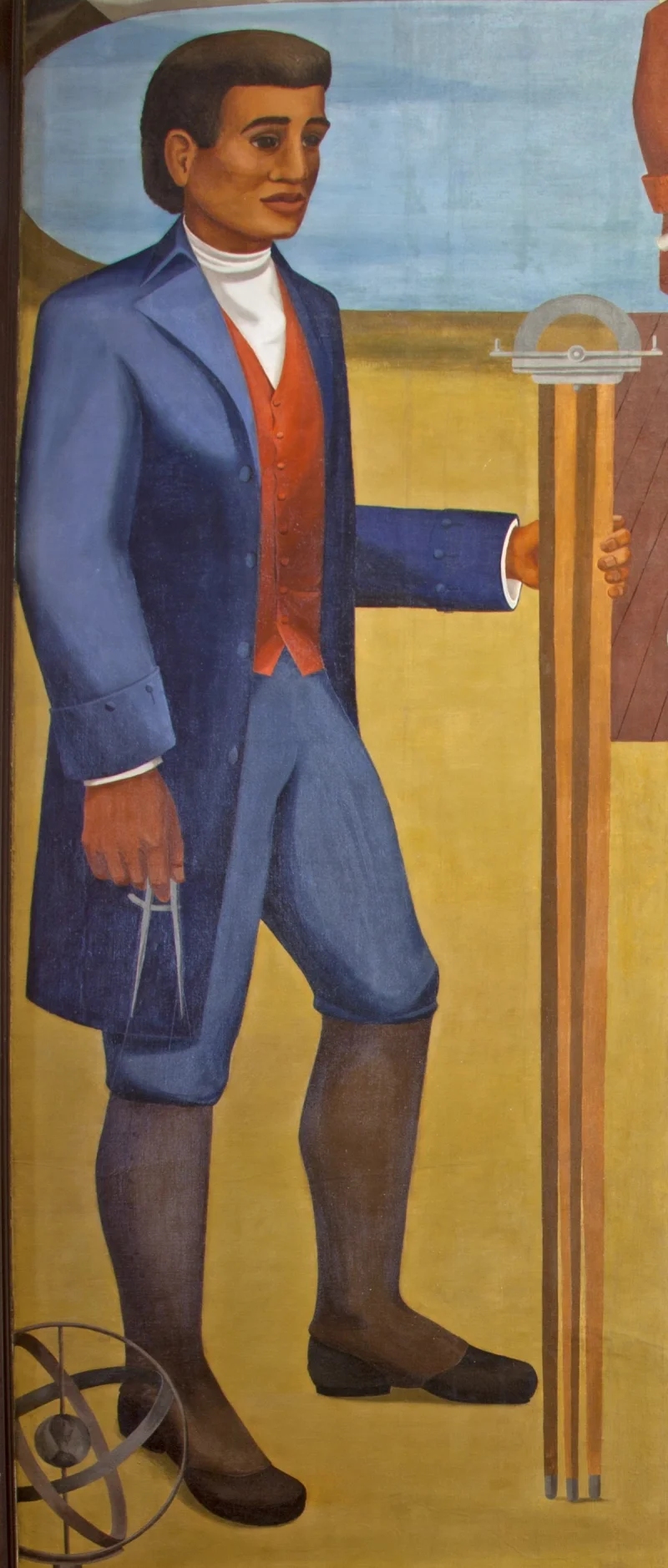Short Summary
Benjamin Banneker was an African American polymath known for his work as a surveyor, astronomer, and almanac author in the late 18th century. His significant achievements include assisting in the survey of the boundaries of the future capital city of Washington, D.C., and producing a series of almanacs that were widely praised for their accuracy. He is famous for his contributions to science and civil rights, advocating for racial equality during a time when slavery was prevalent in America.
Early Life & Education
Benjamin Banneker was born on November 9, 1731, in Baltimore County, Maryland, to a free African American woman named Mary Banneky and a former slave named Robert. Growing up on a farm, Benjamin was largely self-taught, with a brief period of formal education at a Quaker school. His grandmother, an Englishwoman, played a significant role in his education, teaching him to read and write. Banneker's early fascination with mechanics was encouraged by his family, which led him to construct a wooden clock that struck on the hour, inspired by a borrowed pocket watch.
Career Highlights
Banneker's career took a turning point when he was enlisted by Major Andrew Ellicott to assist in surveying the boundaries of Washington, D.C., in 1791. His meticulous work contributed to the successful completion of this important project. Banneker is perhaps best known for his almanacs, published between 1792 and 1797, which included his astronomical calculations, weather predictions, and essays advocating for social justice. These publications established him as an intellectual and a voice for racial equality, earning him recognition both in the United States and abroad.
Major Achievements
- Constructed a wooden clock that kept precise time for over 50 years.
- Assisted in the survey of Washington, D.C., helping to define its boundaries.
- Published an annual series of almanacs featuring astronomical calculations and weather forecasts.
- Advocated for the abolition of slavery through correspondence with Thomas Jefferson.
- Became one of the first African Americans to gain national recognition for scientific and intellectual achievements.
Famous Quotes
- "The colour of the skin is in no way connected with strength of the mind or intellectual powers."
- "Evil communication corrupts good manners."
Interesting Facts
- Banneker's wooden clock was one of the first wholly made in America.
- He published his first almanac at the age of 59.
- He wrote a letter to Thomas Jefferson, challenging him to recognize the equality of all men.
- Banneker's almanac was used by abolitionists as evidence of African American intellectual capabilities.
- He was largely self-taught in astronomy and mathematics.
Legacy / Influence
Benjamin Banneker's legacy lives on through his contributions to science and his advocacy for civil rights. His work as an astronomer and surveyor challenged the prevailing racial stereotypes of his time, proving the intellectual capabilities of African Americans. Banneker's correspondence with Thomas Jefferson is often cited as a significant moment in the early civil rights movement. His efforts laid the groundwork for future African American scientists and activists.
FAQ
Q: Why is Benjamin Banneker famous?
A: He is famous for his work as a surveyor, almanac author, and advocate for racial equality.
Q: What did he contribute to the development of Washington, D.C.?
A: He assisted in surveying the boundaries of the future capital city.
Q: How did he impact the field of astronomy?
A: Through his accurate astronomical calculations published in his almanacs.
Q: What was his stance on slavery?
A: He was an advocate for the abolition of slavery and challenged racial inequality.













